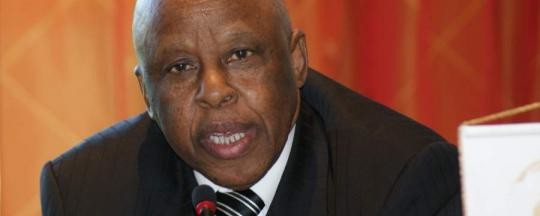Explaining S Sudan's peace deal (27): What is the Joint Monitoring and Evaluation Commission?

Focus on the Agreement is a series of reports broadcast on Radio Tamazuj to explain the contents of the peace deal signed in August 2015 between South Sudan's warring parties. Today we look at Chapter 7 of the peace agreement, which is about a new group called the Joint Monitoring and Evaluation Commission.
The Joint Monitoring and Evaluation Commission is a group of South Sudanese, regional and international members responsible for monitoring the implementation of the peace agreement. The head of the commission is Festus Mogae, the former president of Botswana.
The commission will oversee the work of the Ceasefire Monitoring Mechanism. It may also request reports from other transitional institutions and mechanisms, for example, the Naitonal Elections Commission and the Strategic Defence and Security Review Board.
The Joint Monitoring and Evaluation Commission will write regular reports to the African Union, to the transitional government, to the IGAD Chairpoerson and to the Security Council of the United Nations on the progress of the implementation of the peace agreement.
These reports should be written every three months.
Membership of the Joint Monitoring and Evaluation Commission includes representatives of countries including Ethiopia, Kenya, Djibouti,
Sudan, Uganda, China, Norway, the US, the UK, the European Union and the African Union Commission, as well as delegates of the rebels and government and the SPLM Former Detainees and other parties.
Religious groups, civil society, women's bloc and the business community will also have representatives on the commission.
Decisions by the Joint Monitoring and Evaluation Commission will be made by majority vote.
In case that any of the parties to the peace agreement violate the agreement, the commission may make a report about this and recommend what to do.
Read also our previous 'Explaining S Sudan's peace deal' (26): Constitution-making and federalism